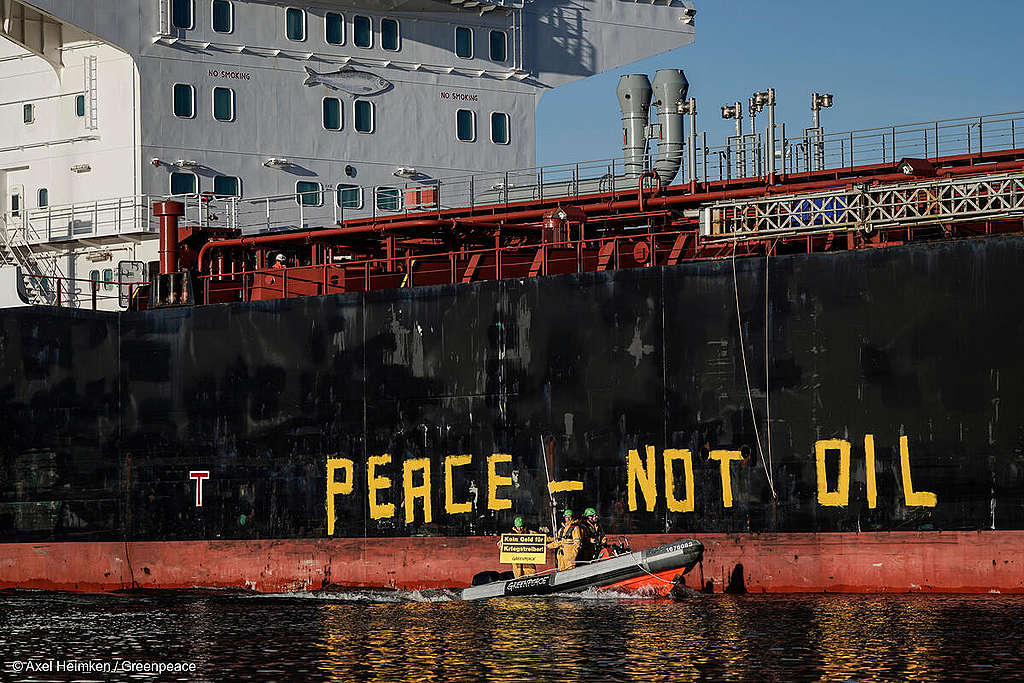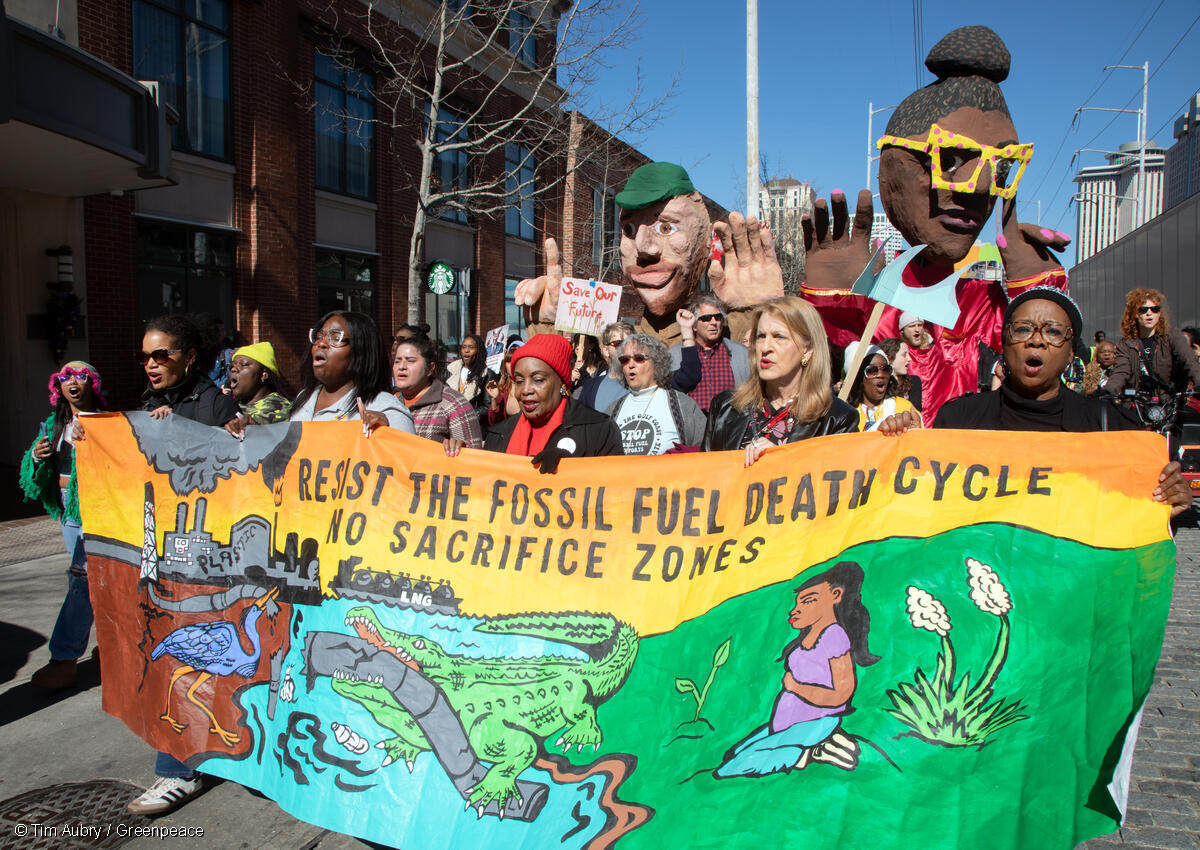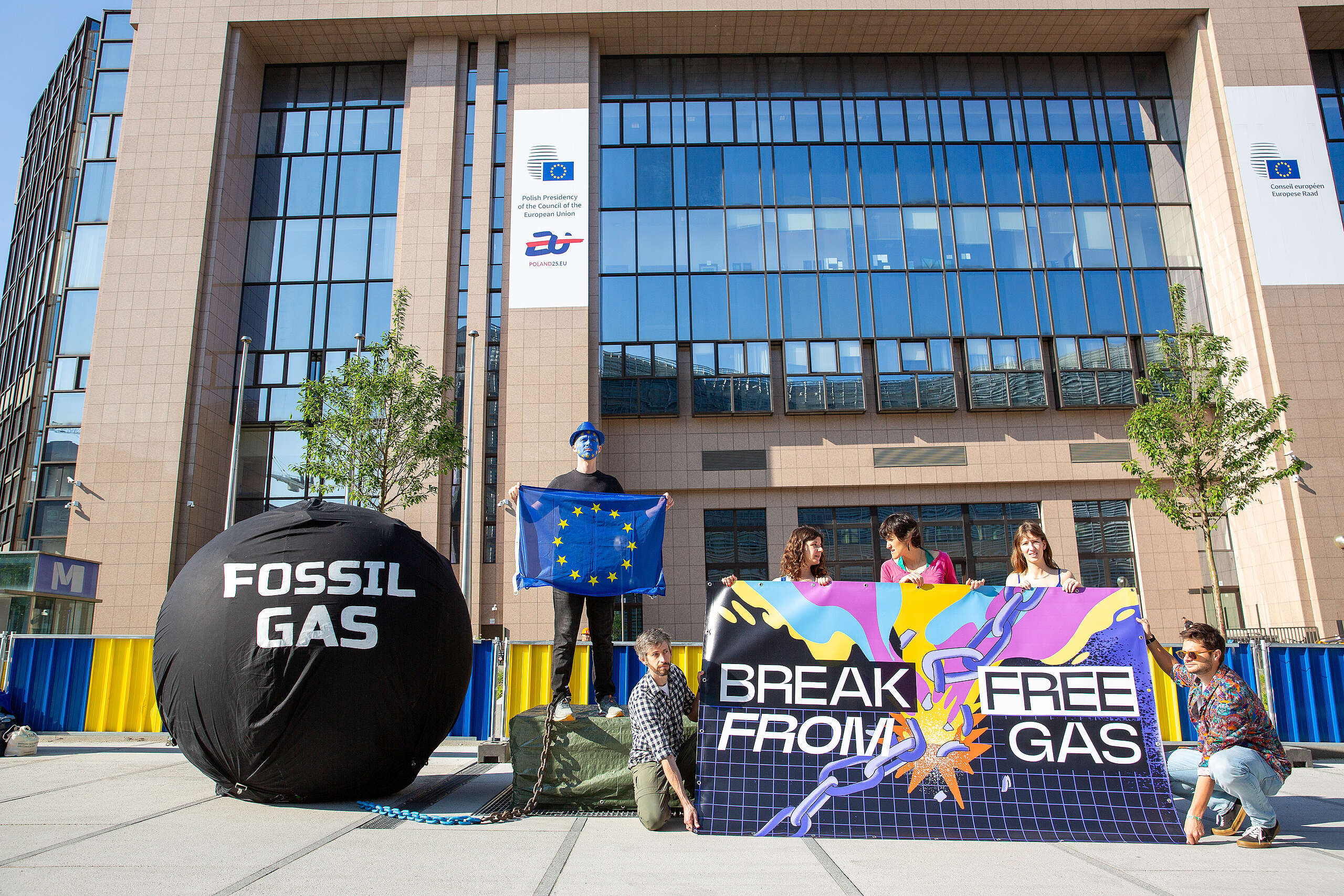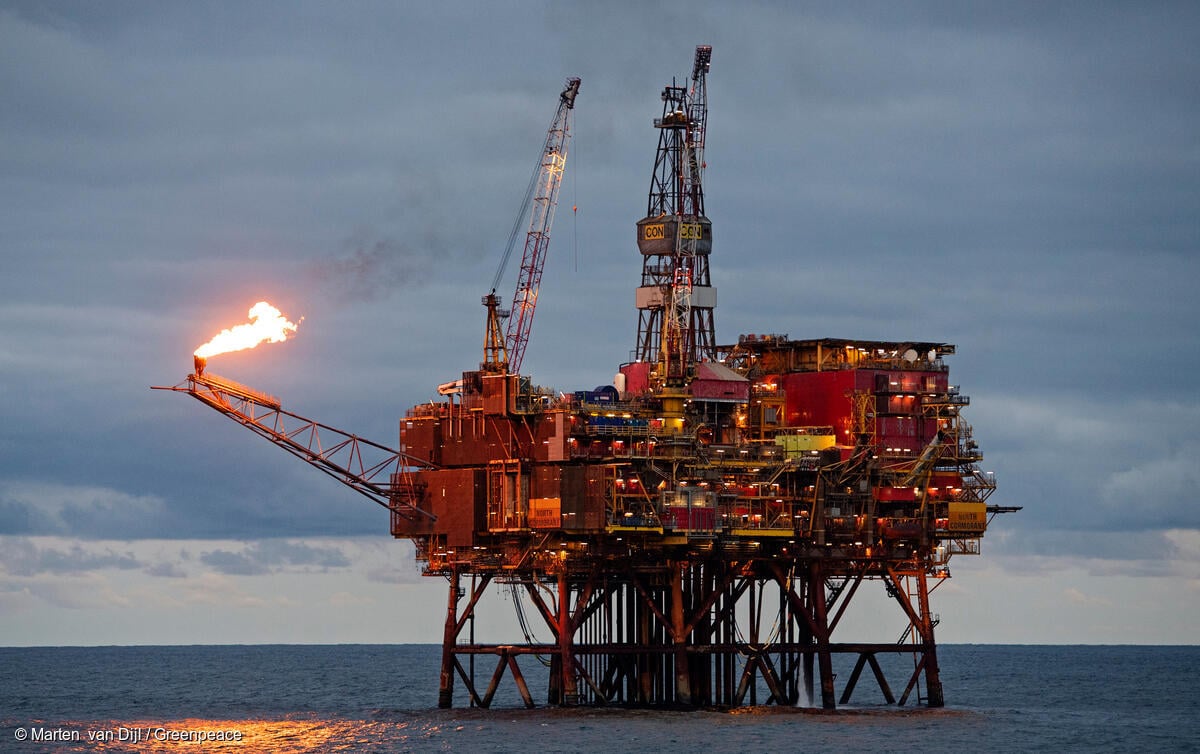Brussels – Ending short-haul flights in the EU, where a rail alternative already exists, would save enough jet fuel to reduce the bloc’s annual oil imports from Russia by around €2 billion, according to new analysis by Greenpeace Central and Eastern Europe. The new calculations come ahead of a meeting of EU leaders in Versailles on Thursday and Friday to discuss ways to reduce the EU’s dependence on energy imports from Russia.

Short-haul flights that already have a train connection consume about 4.35 million tonnes of kerosene in a regular pre-pandemic year, and emit the equivalent of 23.4 million tonnes of CO2. Russia is the largest single supplier of oil to the EU, accounting for around 27% of oil imports to the bloc, meaning one flight in every four is powered by Russian oil. At average market prices for Russian oil, the amount spent on oil-based jet fuel for flights that have a train connection amounts to around €2 billion annually, though the figure is likely to be even higher given the current soaring oil prices.
Herwig Schuster, spokesperson for Greenpeace EU Mobility For All campaign, said:
“Europe’s transport system is addicted to oil – fueling bloody conflict and the climate crisis. Using less energy is the quickest and easiest way to stop funding Putin and to tackle climate breakdown. Cutting short-haul flights where there’s a decent rail alternative is low-hanging fruit that will immediately bring oil use down.”
Greenpeace is calling for a ban on short-haul flights in the EU, where a train connection exists, as a measure to immediately reduce Europe’s dependency on crude oil that is driving conflict and climate breakdown. A recent Greenpeace report shows that a third of the busiest short-haul flight routes in Europe have a train connection under six hours.
Greenpeace is also calling on European leaders to phase-out the sale of new cars with combustion engines latest by 2028 and massively invest in improving the European rail sector, including at least 30 new train connections in the next three years.
62% of Europeans support a ban on short haul flights, according to a survey conducted by the European Investment Bank and a large majority support the development of daytime and night trains.
Contacts:
Herwig Schuster, spokesperson for Greenpeace’s European Mobility For All campaign: +43 664 4319 214, [email protected]
Greenpeace EU press desk: +32 (0)2 274 1911, [email protected]
For breaking news and comment on EU affairs: www.twitter.com/GreenpeaceEU
Greenpeace is an independent global campaigning network that acts to change attitudes and behaviour, to protect and conserve the environment and to promote peace. We do not accept donations from governments, the EU, businesses or political parties. Greenpeace has over three million supporters, and 26 independent national and regional organisations with offices in more than 55 countries.
EU Transparency Register: 9832909575-41



